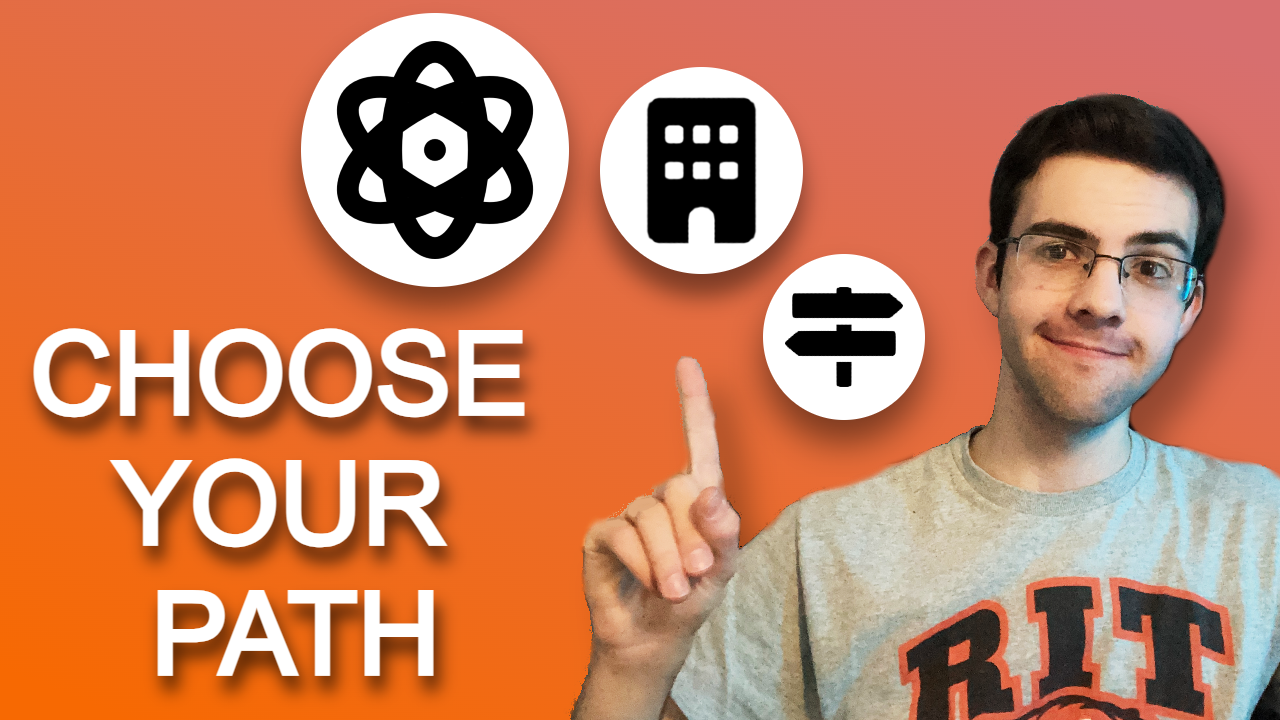First-Year Undergraduate Application

How to Apply
First-Year Students
- RIT/
- Admissions and Aid/
- First-Year Admission/
- How to Apply
Start an Application
Statement on Ethical and Fair Admissions Practices
The Office of Undergraduate Admissions continues to put students first in the admissions process. We continue to use fair and ethical practices as we recruit, review applications and counsel our prospective students and their families. Our admissions officers support and promote ethical responsibility with our colleagues in the admission profession.
Manage Your Application
With an RIT admissions account, you can monitor your application, submit a portfolio (if required), apply for the Performing Arts Scholarship, receive your admissions decision, and more.
If you need to change your submitted application, do not submit a new application. Please email admissions@rit.edu with your request (e.g. change academic program choices, switch to Early Decision, change your term, withdraw application, etc).
First-Year Admission Requirements
Mark Muenzer from Undergraduate Admissions is here to help walk you through the first-year admission process. Learn what RIT looks for in applicants, academic requirements, application timelines, and more.
Application Timeline
You may submit your fall application starting on August 1. Spring Semester or Summer Term applications are reviewed on a rolling basis.
If RIT is your first choice university, there are many benefits to applying with one of our Early Decision plans. Learn more about Early Decision benefits
Scroll table horizontally to view more ➤
|
Timeline |
Early Decision I | Early Decision II | Early Action | Regular Decision |
|---|---|---|---|---|
| Application Deadline | November 1 | January 1 | November 1 | January 15 |
| FAFSA Recommended Filing Date | November 1 | January 1 | January 15 | January 15 |
| Admission Decision Notification | Mid-December | Mid-January | Late-January | Mid-March |
| $500 Deposit Deadline - Pay Deposit | January 15 | February 15 | May 1 | May 1 |
Admission applications received after the deadline will be reviewed on a space-available basis.
Completing the FAFSA by the recommended deadline ensures timely delivery of your financial aid offer, allowing you time to make an informed enrollment decision.
Missed the Deadline? Not a Problem! Admission applications received after the deadline will be reviewed, but on a space-available basis for each program. If you have questions, contact admissions@rit.edu.
Applying Early
Is RIT one of your top choices? If you act sooner, you will know earlier. Consider applying for one of our early plans – Early Decision I, II, or Early Action. You will receive an admissions decision and financial aid offer earlier than Regular Decision applicants.
Early Decision I is for students who are certain RIT is their top choice. Apply by November 1 to:
- Receive the earliest possible decision by mid-December
- Stand out in a small pool of applicants and benefit from higher acceptance rates, especially for competitive majors
- Get a full review of your scholarship and financial aid eligibility before depositing
- Wrap up your college search early – if accepted, you'll commit to RIT by January 15 and stress less during your senior year
Early Decision II is a second round of application review for students who discover that RIT is their top choice after the Early Decision I deadline has passed.
Apply by January 1 if you like all the reasons listed in Early Decision I and would like to be considered for the second round. If accepted, you'll commit to RIT by February 15 and stress less during your senior year.

Early Action is for students who are excited about RIT and ready to apply early and hear back sooner. Apply by Nov. 1 to
- Receive your decision by late-January
- Show your interest in RIT without having to commit early
- Get your scholarship offer before Regular Decision applicants
- Have until May 1 to make your final decision
Choose Your Path
When applying to RIT, you have several options on how to start your journey—all that can lead to on-time graduation.
1. Degree Programs
“I know which major I want to apply to.”
Great! Apply directly to your desired major and start relevant coursework right away.
2. College Exploration
“I know which college I’m interested in, but I want to explore a few majors.”
Apply to a College Exploration program. This will give you the opportunity to have a general focus, but take classes within multiple majors.
3. Individualized Study
"I have a lot of interests, but they don't fit neatly inside a single degree program or college."
No problem. The School of Individualized Study can help. You may be able to design a major around your interests, goals, and career aspirations.
What We Look For
Admission to RIT is competitive, but our admissions process is personalized. We assess academic strength, standardized test scores (if you choose to submit them), recommendations, portfolio quality (where applicable), as well as extracurricular activities and personal career interests.
Our students come from a variety of geographic, social, cultural, economic, and ethnic backgrounds. View the academic profile for a review of last year's incoming class, why they chose RIT, and a list of first-year admission requirements.
Honors Program selection and notification is also part of our holistic review process. Please indicate your interest in the Honors Program on your admission application to be considered.
Academic Preparation and Requirements
General Requirements
For all bachelor’s degree programs, a strong performance in a college preparatory program is expected. Generally, this includes:
- 4 years of English
- 3 years of social studies and/or history
- 3-4 years of mathematics
- Specific math requirements are detailed by college below
- 2-3 years of science
- Specific science requirements are detailed by college below
- Completion of a High School Diploma or its equivalence
Homeschooled Students
RIT has a history of admitting academically talented students from homeschool settings. In the absence of consistent homeschooling standards nationally and globally, guidelines have been developed for homeschooled students seeking RIT admission.
Degree-Specific Requirements
Academic strengths and requirements vary from one major to another. For example, we would expect students applying to our Computer Science program to have particular strength in mathematics, while students applying to Fine Arts programs would need to show artistic talent through their required portfolios.
Specific requirements are detailed by college below. View degrees by college if you are not sure which college your degree is in.
Programs in the School of Art and in the School of Design
- All programs (except New Media Design) require studio art experience and a portfolio of original artwork. View portfolio guidelines
- Medical Illustration requires biology.
Programs in the School of Film and Animation
- Film and Animation requires a portfolio of expressive, original work. View portfolio guidelines
- Motion Picture Science requires 4 years of math which must include algebra, geometry, algebra 2/trigonometry, and pre-calculus. Calculus is preferred. Chemistry or physics is required and both are recommended.
Programs in the School of Photographic Arts and Sciences
- Photographic Sciences prefers biology.
- Photographic Sciences requires 3 years of math which must include algebra, geometry, and algebra 2/trigonometry. Pre-calculus is preferred.
All Programs
- 3 years of math is required and must include algebra, geometry, and algebra 2/trigonometry.
- Pre-calculus is preferred.
Computing and Information Technologies and Human-Centered Computing
- 3 years of math is required and must include algebra, geometry, and algebra 2/trigonometry. Pre-calculus is preferred.
- Chemistry or physics is required; both are preferred.
- Computing electives are preferred.
All Other Programs
- 4 years of math is required and must include algebra, geometry, algebra 2/trigonometry, and pre-calculus. Calculus is preferred.
- Chemistry or physics is required; both are preferred.
- Computing electives are preferred.
All Programs
- 4 years of math is required and must include algebra, geometry, algebra 2/trigonometry, and pre-calculus. Calculus is preferred.
- Chemistry and physics are required.
- Biomedical Engineering requires biology.
All Programs
- 3 years of math is required and must include algebra, geometry, and algebra 2/trigonometry. Pre-calculus is preferred.
- Chemistry or physics is required and biology is recommended.
- Technology electives are preferred.
All Programs
- 3 years of math is required and must include algebra, geometry, and algebra 2/trigonometry.
- Pre-calculus is preferred for all programs. For Global Public Health, pre-calculus and/or statistics is preferred.
- Biology is required for all programs.
- Chemistry is required for all programs except Diagnostic Medical Sonography, where it is preferred.
- Physics is preferred for Diagnostic Medical Sonography.
All Programs
- 3 years of math is required and must include algebra, geometry, and algebra 2/trigonometry.
- Strong performance in English and Social Studies is expected.
Applied Mathematics, Applied Statistics and Data Analytics, Computational Mathematics, and Imaging Science
- 4 years of math is required and must include algebra, geometry, algebra 2/trigonometry, and pre-calculus. Calculus is preferred.
- Chemistry or physics is required and both are recommended.
Physics
- 4 years of math is required and must include algebra, geometry, algebra 2/trigonometry, and pre-calculus. Calculus is preferred.
- 3 years of science; physics is required.
All Other Programs
- 3 years of math is required and must include algebra, geometry, and algebra 2/trigonometry. Pre-calculus is recommended.
- Biology is required for Biochemistry, Biology, Biotechnology and Molecular Bioscience, Bioinformatics and Computational Biology, Environmental Science, and Neuroscience. It is recommended for Chemistry.
- Chemistry is required for all programs.
Deaf and hard-of-hearing students seeking admission to bachelor’s degree programs in the other colleges of RIT should refer to the information for the appropriate college and apply for NTID support and access services during the application process.
A Pre-baccalaureate Studies Option is also available for students who may need additional preparation before entering a bachelor’s degree program in engineering, liberal arts, science and mathematics, or visual communications.
The following requirements are for Bachelor's degrees offered by NTID. For requirements for all other NTID degrees, visit How to Apply to NTID.
American Sign Language-English Interpretation
- Strong performance in English is expected.
- Must demonstrate competency to begin at ASL II.
Community Development and Inclusive Leadership
- Strong performance in English and social sciences is expected.
- ASL fluency is required for hearing students applying to the Deaf Leadership track.
All Programs
- 3 years of math is required and must include algebra, geometry, and algebra 2/trigonometry.
- Strong performance in English and Social Studies is expected.
- Supplemental Essay requirement: RIT is pleased to be able to offer a limited number of students the opportunity to customize a degree pathway. What personal or professional outcome are you hoping to achieve? In what ways have you prepared yourself for this distinctive educational experience?
Application Checklist
Use this list to make sure you don't miss a step!
-
Complete the Common Application or RIT Application
-
Submit an official high school transcript. Transcripts may be sent electronically or mailed/emailed to RIT Admissions from your high school.
Homeschooled Students - review guidelines developed for homeschooled students in our FAQ section. -
Submit a letter of recommendation.
A school counselor recommendation is preferred, teacher recommendations are welcome, and any additional recommendation letters will be considered (minimum of 1 recommendation letter required, suggested maximum of 3-5). Recommenders are welcome to email their letters to admissions@rit.edu. -
Optional: Provide official or self-reported test results from the SAT and/or ACT.
RIT is "Test Optional" for all undergraduate programs. Applicants may choose whether to report test scores to be considered with their application. -
Submit an original essay on a topic outlined in the Common Application or RIT Application. No supplemental essays for RIT are required unless applying to the Honors Program or the Individualized Program BS.
-
International Applicants Only - Students whose native language is not English must submit results of the Duolingo, IELTS, LanguageCert Academic, PTE Academic, or TOEFL examination. Testing can be self-reported. View English Language Proficiency Requirements for further information.
-
An Art Portfolio is required for admission to the Schools of Art, Design, and Film and Animation. Submit your portfolio through the RIT Admissions Portal after applying or mail it to Undergraduate Admissions.
Test Optional Information
RIT is "Test Optional". This means submitting SAT or ACT scores as part of your application is not required. You can choose whether or not you'd like to submit them. It's entirely up to you! RIT will superscore the SAT and/or ACT if multiple test score results are provided.
Please note: If you are applying to a STEM (Science, Technology, Engineering, or Math) program and are planning to submit your ACT scores, we recommend including the optional ACT Science section.
Frequently Asked Questions
On the Common App or RIT Application, you'll have the option to include test scores. If you do not include them as part of your application, RIT will not see your scores (even if you've taken a test).
RIT will continue to review applications with a holistic approach, taking all of the applicant’s credentials into account. For applicants requesting to be reviewed without test scores, the admissions committee will continue to look at all factors of a student's application including grades earned in academic coursework; performance in honors, IB/AP courses; regents coursework and exams (for NYS residents), essay/personal statement; letters of recommendation, involvement in activities; and other achievements, along with a portfolio for those students applying to one of RIT’s BFA degrees in the Schools of Art, Design, and Film and Animation. In the absence of test scores, more weight will be placed upon the overall grade performance and other items mentioned above.
















